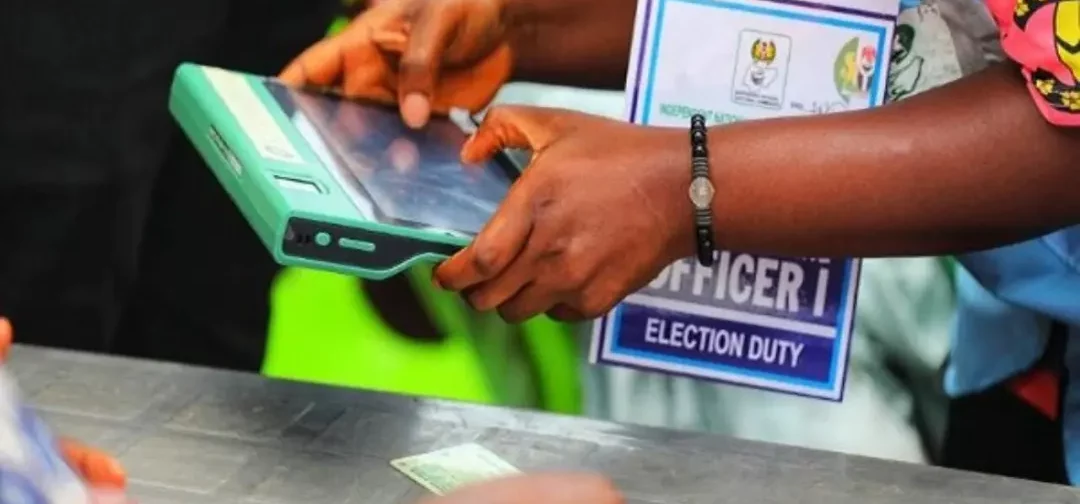
This post highlights the key points to note about the bimodal voter accreditation system used by INEC in the Nigeria elections. After the enacting of the Electoral Act 2022, the Independent National Electoral Commission (INEC) officially introduced the “Bimodal Voter Accreditation System” (BVAS) in Nigeria ahead of 2023 general elections. This biometric voter authentication system was designed to ensure the accuracy and integrity of the voting process by using biometric technology to verify the identity of voters.
In Nigeria, voter accreditation is an essential part of the electoral process. The electoral body INEC is responsible for conducting elections and voter accreditation in the country. Before the implementation of BVAS, the existing voter accreditation system in place involves the use of a Permanent Voter Card (PVC) and a Card Reader device.
The PVC is a biometric identification card issued to eligible voters in Nigeria. It contains the voter’s personal information, including their photograph and fingerprints. To participate in elections, voters are required to obtain a PVC by registering with INEC at designated registration centers.
The Card Reader is an electronic device used by INEC Nigeria to verify the authenticity of the PVC and accredit voters during elections. It is designed to read the encoded information on the PVC, including the biometric data. The Card Reader helps to prevent multiple voting and identity electoral fraud by ensuring that only eligible voters can participate in the exercises.
During elections, the accreditation process involves the following steps:
However, the voter accreditation system in Nigeria has evolved with the introduction of the BVAS which was a major game changer from the 2023 election observations. Below are some key points about bimodal voter accreditation system:
The bimodal voter accreditation system is a concept that involves using two distinct modes or methods for voter identification and accreditation during elections. It aims to enhance the security and integrity of the voting process by combining two different forms of authentication.
In a bimodal voter accreditation system, the first mode typically involves traditional methods of voter identification, which is the presentation of a INEC-issued permanent voter card (PVC) to the polling officials. This mode ensures that the voter’s identity is verified using established documentation and verification processes.
The second mode is the use of a technologically advanced approach, utilizing the biometric authentication methods as provided by the BVAS Machine. Here the electoral officer uses the individual characteristics such as fingerprints, iris scans, or facial recognition, to verify voter identity. The biometric data collected from voter is compared against a centralized database stored in a server to ensure accuracy, transparency and prevent fraudulent voting.
By combining these two modes, the bimodal voter accreditation system aims to provide a higher level of security and reduce the likelihood of voter impersonation or fraudulent voting. It leverages the reliability of traditional identification methods while incorporating the advanced verification capabilities of biometric technology.
The implementation of the BVAS machines in the 2023 presidential election has demystify the imaginary “10 million votes in the bank” as claimed by some politician and political parties in Nigeria. Nigerians now know that the best way to win elections in Nigeria is the win the hearts of the people or electorate. With technological advancements, there will be no shortcuts to political power in Nigeria going forward.
It is important to note also that the implementation of a bimodal voter accreditation system requires careful consideration of privacy concerns, data protection, integrity and accessibility to ensure that it is inclusive and does not unduly infringe upon individual rights. Additionally, the specific regulations and guidelines surrounding the use of biometric systems and technology in Nigerian elections should be reviewed, improved and policies adjusted to foster good governance.